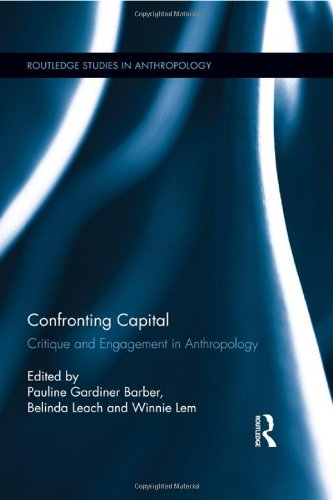

Most ebook files are in PDF format, so you can easily read them using various software such as Foxit Reader or directly on the Google Chrome browser.
Some ebook files are released by publishers in other formats such as .awz, .mobi, .epub, .fb2, etc. You may need to install specific software to read these formats on mobile/PC, such as Calibre.
Please read the tutorial at this link: https://ebookbell.com/faq
We offer FREE conversion to the popular formats you request; however, this may take some time. Therefore, right after payment, please email us, and we will try to provide the service as quickly as possible.
For some exceptional file formats or broken links (if any), please refrain from opening any disputes. Instead, email us first, and we will try to assist within a maximum of 6 hours.
EbookBell Team

4.4
42 reviewsThis volume is an exploration of the ways in which political economy as a mode of analysis moves anthropology toward a vital, politically engaged form of scholarship. It advances the understanding of the struggles of ordinary people in the face of capitalist change. In the current economic moment when such changes are tumultuous and the instabilities of capitalism are starkly revealed, this book responds to the urgent need for theoretical and methodological approaches for understanding the forces that shape our contemporary world. Through ethnographic investigations of the quotidian, and through the thematic of politics, history and livelihoods, which distinguish Marxist political economy in the field of anthropology, the authors here reveal the increasing complexity of everyday lives. Using examples derived from fieldwork carried out across diverse geographical locations, the authors pay particular attention to historical conditions shaping the peoples’ life trajectories. In so doing the authors engage critically, and with differing emphases, with political economy and Marxism as a mode of inquiry. This book illustrates the productive tension between observations emerging from the field and theoretical debates that is generated by anthropological ethnography.